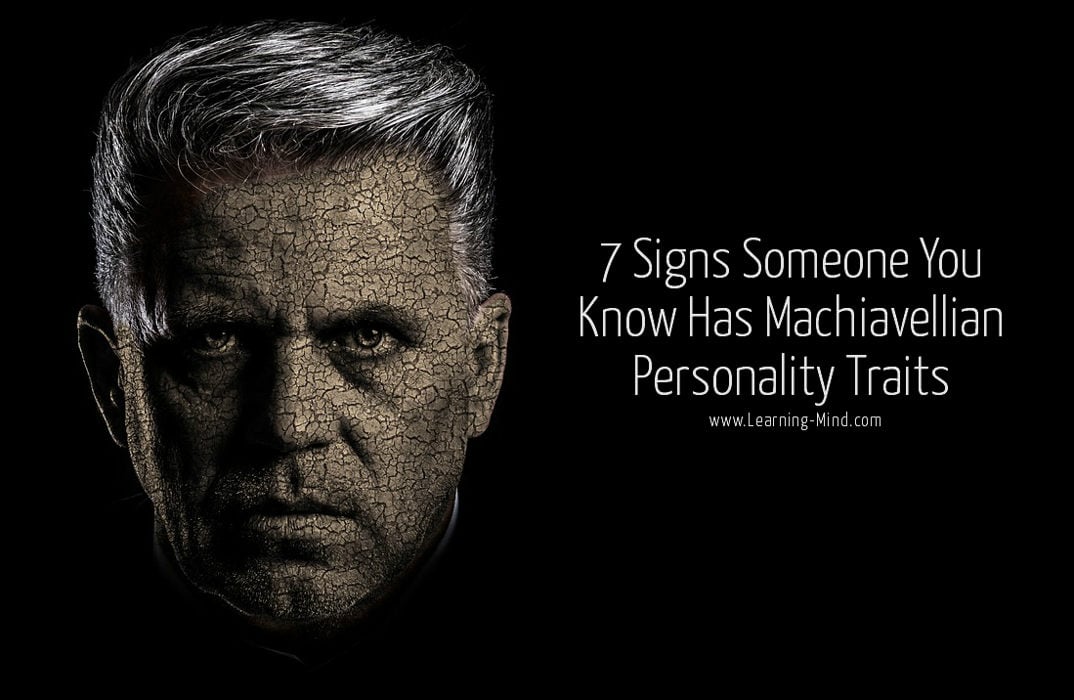
If you have ever watched a true-crime programme or been interested in deviant personalities, then you are familiar with certain personality traits. We often hear of the narcissist or the psychopath, but we rarely hear about the Machiavellian Personality.
Yet, Machiavellism forms a third of the Dark Triad, along with narcissism and psychopathy. So I wonder why this particular trait is not as well understood, when in fact, it is the most interesting.
Let’s start at the beginning.
The term Machiavellian derives from the early 16-century Italian Renaissance philosopher and writer Niccolò Machiavelli. Machiavelli was the political adviser to the powerful ruling Medici family in Italy.
Before Machiavelli came along, politics was considered to be a matter of ethics and morals. Machiavelli realised there was a better way to gain and maintain control.
He believed that the end justified the means and that rulers should use any tools at their disposal. This included deception, manipulation, and fear to achieve power.
So how does a person with Machiavellian traits present themselves in modern society?
Machiavellianism is a malevolent personality trait whereby a person will exploit, abuse, and manipulate to achieve their goals. Machiavellism is one of the traits in the Dark Triad; along with psychopathy and narcissism.
Machiavellians believe everyone is untrustworthy. They are suspicious by nature. They think the world is a game, made of up winners and losers. You play the game to win and if someone gets crushed along the way that’s just how it works.
They assume everyone is doing the same as they are. So if they don’t get you first, they will be the loser.
We all tell lies. Little white lies that don’t offend our friends. We make excuses for why we can’t attend a colleague’s wedding or we say that our partner looks great in that dress.
But Machiavellian lies are on a different level. More to the point, they are good at lying. Machiavellian personalities rarely tell the truth. They’ll tell the sort of lies that get you into trouble and put them in a favourable light.
“If indeed I do sometimes tell the truth, I hide it behind so many lies that it is hard to find.” Machiavelli
If this means exploiting others, then so be it. They will use all their powers of persuasion and flattery to get you to do the majority of the work. But you won’t get the recognition. They have already gone to the boss and signed off with their name.
They think that anyone who does put in a hard day’s work is a sucker and deserves to be used.
The Machiavellian personality values money over family, power over people, and status over morality. It is easy to spot this person. They’ll be the family member insisting on discussing the split of inheritance at your parent’s funeral.
Or the ex-partner bragging about how they screwed you into paying more than your fair share of the bills.
Machiavellians will do anything to achieve their goals. This means they have to use or exploit others. People are merely means to an end for them. They are objects to be used to further their interests.
They might be friends, lovers, or family members; it doesn’t matter to the Machiavellian. Whether it is posting incriminating pictures of an ex-partner on social media, or withholding vital information from a colleague. After all, isn’t everyone doing the same thing?
Machiavellian personalities come across as charming and personable when you first encounter them. They have a gift for flattery. The Machiavellian personality will tell you what you want to hear.
They’ll exploit friendships and family members by flattering them. Remember those pyramid schemes in the 80s that took the life savings from ordinary folk? They relied on the charm and guile of ruthless salespeople. I bet you could associate the majority with Machiavellian traits.
You won’t find the Machiavellian personality hogging centre stage like the narcissist or the psychopath. Machiavellians like to stay hidden in the shadows, quietly plotting their next tactical move. These are the ultimate coercive controllers.
They like to pull the strings without being noticed. They’ll control the situation and then sit back and watch from afar as their plans unfold.
It’s disturbing to recognise the above signs and realise that you know someone with a Machiavellian personality. But you don’t have to be at their whim.
The way to understand a Machiavellian personality is to recognise how they view the world, and then what tactics they use to manipulate it.
People who score highly in Machiavellian traits think that people cannot be trusted, that they are selfish, gullible, and weak, and therefore, there as pawns to be exploited.
Because they think the world is like this, they feel justified in using any means necessary to achieve their goals. They don’t care about morality or feelings and want results with minimum effort.
The Machiavellian personality may not be as dangerous as the psychopath or cause as much long-term emotional damage as the narcissist. However, they are highly devious, capable of delaying gratification, and skilled in flattery and manipulation.
They are solely focused on their ambitions and will stop at nothing to achieve their end goals.
If you recognise any of the above signs, walk away.
References:
View Comments
There is no dearth of such kinds of people in our society.
So basically a Politian ... ?? ...
This personality is everywhere here. Las Vegas. Now that I am retired, it is interesting to read this and see those traits in people.
Why are dark triad people allowed to participate in society? Shouldn't they be considered disabled & barred from certain professions, such as medicine, teaching, and politics? It seems to me these traits are the root of all evil, not money.
I do not think any one engaging in politics has a good nature